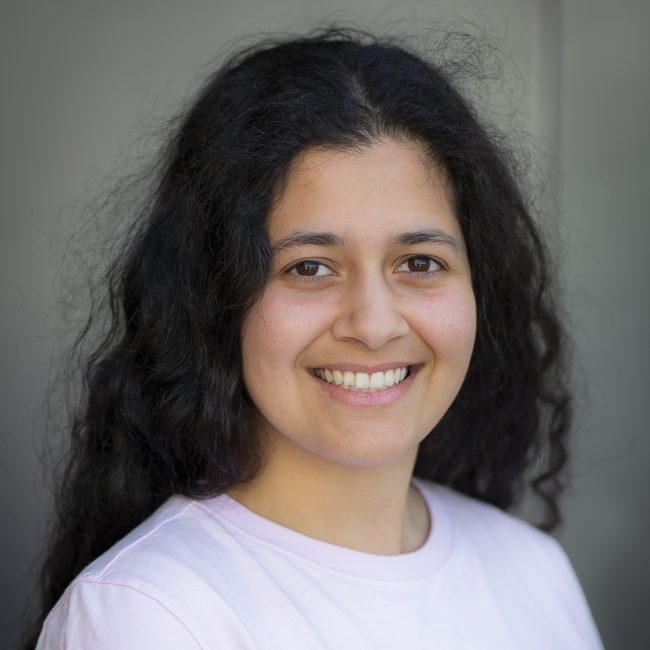
Rebekah D’Cruze
The University of Western Australia
I am an undergraduate student at the University of Western Australia, majoring in Genetics. I volunteered in the Lister lab at the Plant Energy Biology ARC Centre of Excellence in January – April 2019. I have been studying statistics and data analysis as well in order to pursue a career in genetic research as a bioinformatician. Alongside my studies, I am also a private tutor for a variety of subjects, including mathematics.
Can you give me a quick overview of the type of mathematics you are studying and its potential impacts for the broader community
Genetic data analysis has already led to many discoveries that have benefited our society on the familial, community and industry-wide level. I hope with my study of statistics and data analysis that I can further the field of genetics on any level.
What did you want to be when you grew up? If not mathematics research, what would have been?
I have been studying Japanese ever since I was a child, so if I weren’t on my current path now, I probably would be studying to teach Japanese or teach English in Japan.
You attended AMSI BioInfoSummer, what drew you to this event? What was the most valuable part of AMSI BioInfoSummer for you in terms of furthering your career in mathematical sciences?
I attended AMSI BioInfoSummer in 2018 to learn more about bioinformatics so I knew what to expect for this year’s symposium, and I knew I needed to learn more about it outside of what was taught in my degree to be better prepared for a career in research. The most valuable part of BioInfosummer for me was learning more bioinformatic skills, such as using different packages in Bioconductor and R to analyse mRNA expression data.
In what ways has the experience impacted your maths studies? Did this event lead to any new contacts, projects, collaborations?
I now have a better understanding of and more experience with the use of bioinformatic technologies, and I know I definitely want to pursue bioinformatics as a career. I was able to meet a lot of new people, including making contacts for a possible work experience opportunity.
Where do you see yourself in five or ten years time?
To be honest it’s hard to picture where I’ll be in five or ten years time, but I definitely know that I want to be able to use maths to contribute to genetic research to hopefully make the world a slightly better place.
Did you learn about new career options available to you that you were not aware of prior to attending AMSI BioInfoSummer?
Yes – there were many speakers who worked in positions I didn’t previously know existed. It was very eye-opening for me to discover these new possible career opportunities.
How important are initiatives such as the CHOOSEMATHS Grants in terms of fostering the participation and achievement of women in mathematics, particularly in terms of access to networking opportunities and further training opportunities?
The CHOOSEMATHS Grants are very important to not only provide further training for women in mathematics, but further encourage women to embrace mathematical careers and provide them the opportunity to network with other like-minded women.
The CHOOSEMATHS Grants are part of a broader program being delivered by AMSI Schools with support from the BHP Foundation to turn the tide on Australia’s maths deficit and strengthen maths education and participation of women across the discipline. What do you see as the big challenges facing maths in Australia, particularly for women?
In Australia, there is a big problem that starts for many from primary school with the culture of learning mathematics. A lot of solving math problems was about memorising a set of steps, meaning that many people, including myself at some points, struggled with more difficult questions and were put off maths as a result. Being put off maths can happen so quickly and easily, and with the current mindset that many people have of either being a ‘maths person’ or not, it’s not hard to feel hopeless with maths and give up very early. What makes it worse for women is that apart from life sciences, many STEM areas are still seen as male areas. From my experiences, as high school progresses and students start thinking about their future, many think that learning more maths is unnecessary – surprisingly even if they study life sciences – and do not choose the more difficult math subjects. This ‘I’m not good at maths attitude’ is more common in females and can stay with them for the rest of their life. Of the students I tutor, many of their mothers have said, “I can help them with writing and arts, but I’ve just never been good at maths”. What needs to change in Australia is a cultural change – so that everyone knows that whether you’re male or not, you CAN be good at maths!
Best piece of advice you’ve received?
Never give up!
If a peer asked you if they should attend AMSI BioInfoSummer, how would you describe the conference to them?
I would describe it as a week-long eye-opening experience that they should definitely attend.

